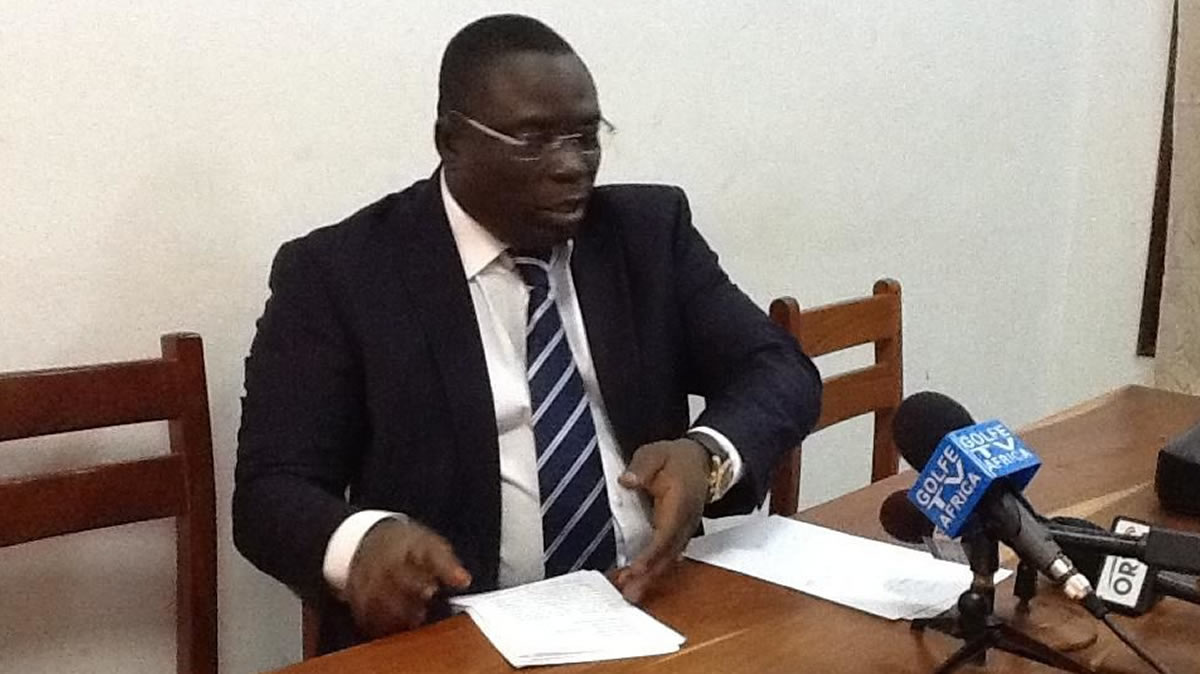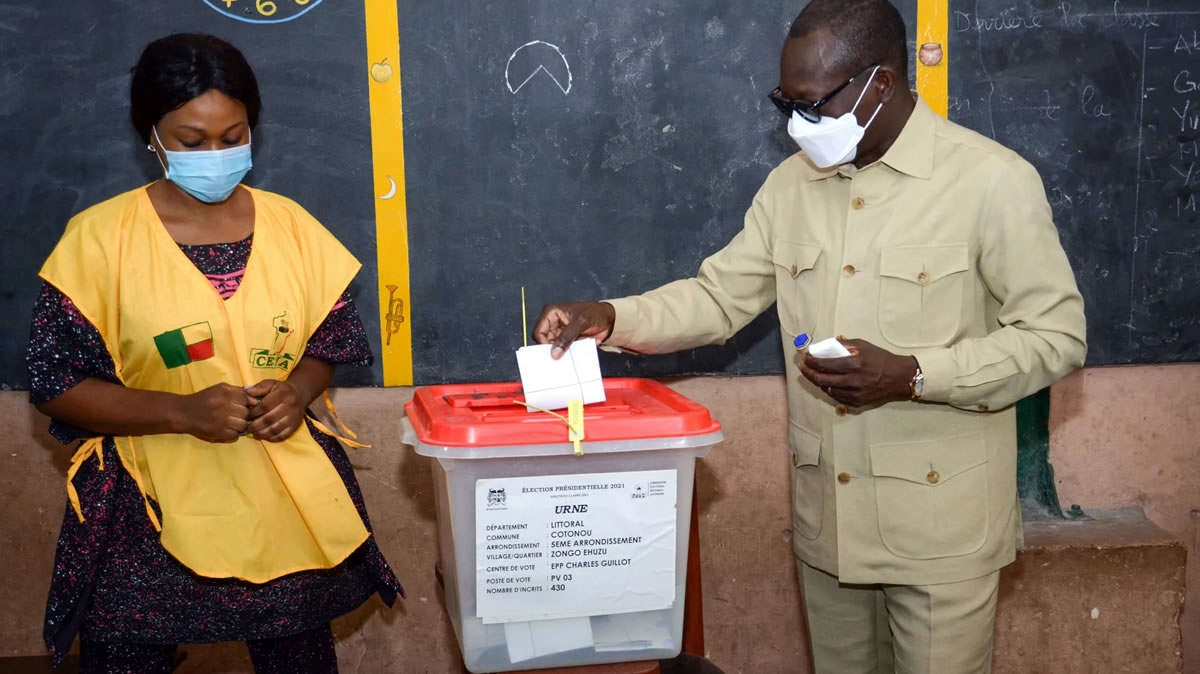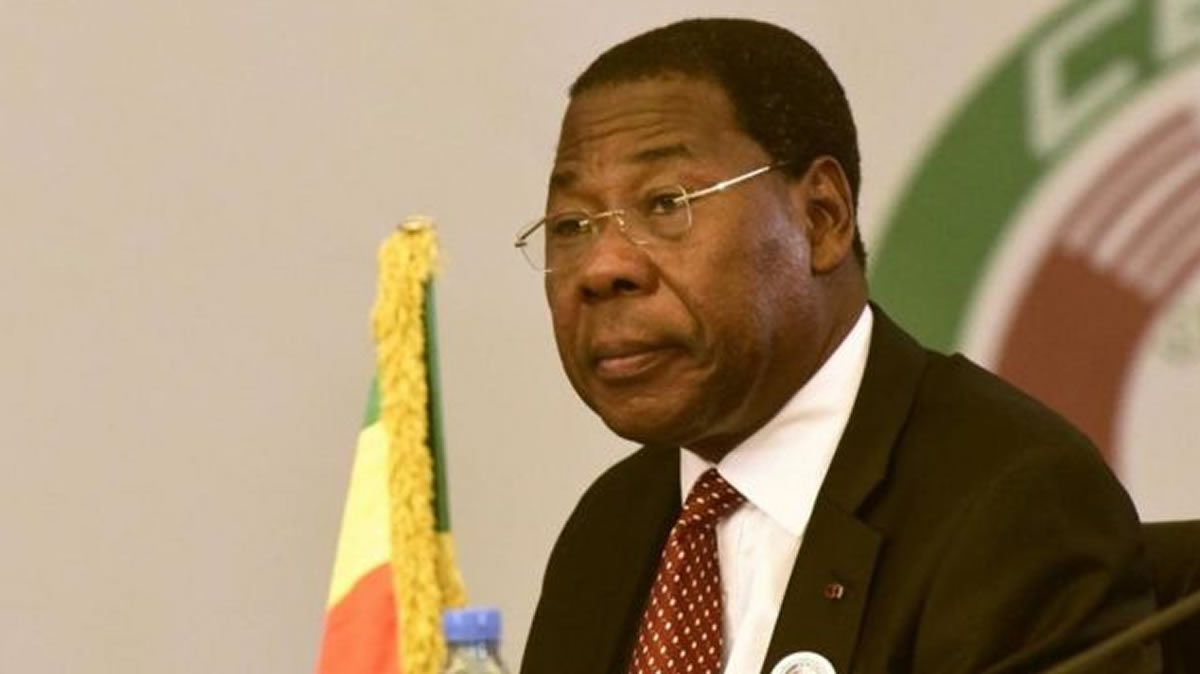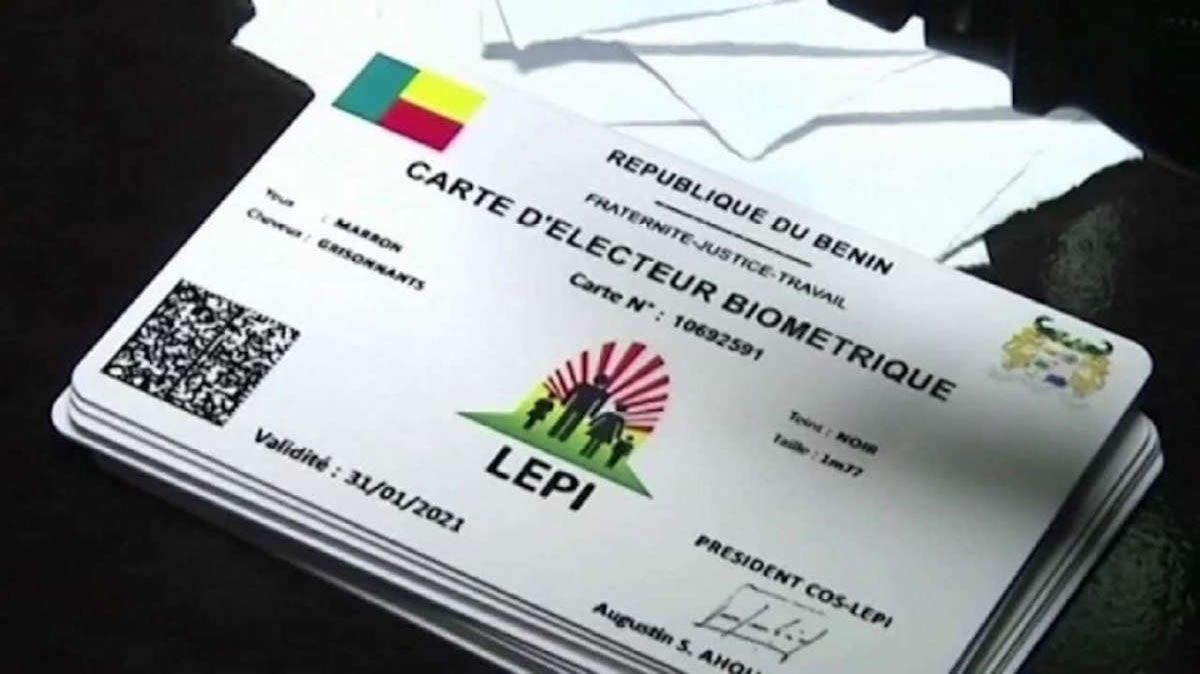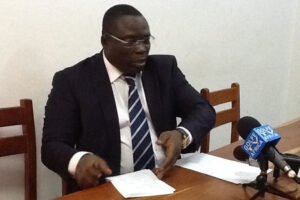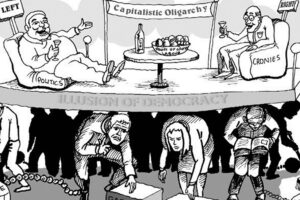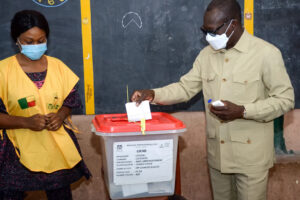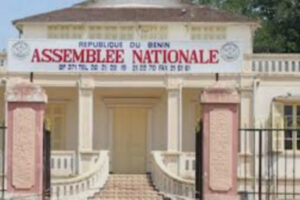A new parliamentary group is to be set up
Last Thursday, April 30, 2009 when National Assembly met for the examination on the draft law regarding the Voters Registry Computerization Project (in French, Liste Electorale Permanente Informatisée) was marked by series of resignations from the ruling FCBE.
The news came out as a big surprise to everybody. some FCBE MPs Edgar Alias, Adam Boni Tessy, Da Matha Sant’Anna Luc André Dassoundo, Seidou Adambi, and Janvier Yahouédéou resigned from their initial parliamentary group, Bénin Emergent Gouvernance Concertée where all the MPs belonging to presidential majority were united. Of course, Benin politics is used this kind of defection from one party or parliamentary group to another. This ongoing trend in Benin National Assembly has mainly been due to the attempts on both camps, the opposition coalition of G13, G4, and Force Clé and the presidential camp to get the majority by wooing the PMs of the advert coalition into defecting.
These latest defections came after a number of resignation. Wallis Zoumarou defected from the ruling FCBE to join the opposition Alliance G13 in November 2008. Isidore Gnonlonfoun defected from the PRD which is an opposition Party to the presidential camp in December 2008. Chabi Tokou Dari defected from the ruling FCBE to the opposition Alliance G13 in the early April 2009. And, Rachidi Gbadamassi defected from G13 Alliance to the presidential camp in the late April 2009.
However, what is the most confusing aspect of this development is the fact that the defectors who intend to form another parliamentary group named FBCE, declare they are still willing to back Boni Yayi’s Government. In order to be able to form a new parliamentary group, these MPs were joined by other MPs either from the opposition Alliance or from allied parties to the ruling FCBE. Therefore, the new parliamentary group is made up of Edgar Alia who heads it, Eloi Aho, Boni Tessi Adam, Zoumarou Walis, Da Matha Sant’Anna Luc, Dassoundo André, Gnonlonfoun Isidore, Seidou Samou Adambi, and Yahouédéou Janvier.
FCBE parliamentarians such as Yahouédéou Janvier and Da Matha Sant’Anna Luc have expressed at some occasions their disappointment over the way the country has been governed.
Nevertheless, these defections do not help anyone apprehend further, what is going on because despite their resignation from their initial parliamentary group, the dissident MPs in their statement reaffirm their support to the Head of State.
There have been many interpretations about this collective resignation. Some analysts see this as a way of signalling their frustrations over some issues among which is the attempt to poach opposition MPs in order to have a strong majority and control the vote of the LEPI draft law in National Assembly. As well as the opposition, the ruling FCBE and its allies hope to win the majority and dictate their wishes in the vote of the LEPI act. One of the most divisive aspects of this law is the choice and the composition of the institutions, which should head the process of LEPI implementation. The presidential camp intends to give the Head of State the upper hand in the appointment of the members of these important institutions.
However, in his speech delivered at the UNDP convention on Saturday, February 21, 2009, in Bohicon, Janvier Yahouédéou has expressed concerns about the approach of the President Boni Yayi over the LEPI implementation. Therefore, the formation of this new parliamentary group might be attempt to avoid the total control of the Government over LEPI because if the ruling FCBE were to have the majority in National Assembly, it would make possible for Boni Yayi to have a tight control over the LEPI implementation. By staging their defections, these MPs may hope to reduce Boni Yayi’s grip on the Parliament and therefore his control over the outcome of LEPI.
Another contentious issue, which might have triggered this series of resignation, is the defection of MP Rachidi Gbadamassi who is allegedly said to have been bribed with a lot of amount of cash into defecting the G13. There have been all sorts of rumours. Some alleged that Gbadamassi had received in exchange of his defection form the G13 Alliance about 2 billion FCFA.
It is likely that these MPs see this defection as a dangerous development which raises doubt about the credibility of Benin democracy. For these PMs, the desperate eagerness of the Head of State and his lieutenants to control the outcome of the LEPI examination causes them to use all unethical means to achieve their aims.
According to media sources, the Head of State in an attempt to diffuse the tension met the MPs of his camp on Thursday, April 30, 2009 at Presidency Palace trying to persuade them that he had never been involved in the Gbadamassi case. Nevertheless, the event at the National Assembly indicates he did not succeed in convincing them.
Anyway, the Speaker of National Assembly refused to formalize the birth of this group arguing some of its members are yet to resign from their initial group.
Lately, it is reported that the MP Adam Boni Tessy has withdrawn from the group stating that the decision of his resignation was taken in haste without throughout consideration of its implications. However, the other MPs are still determined to go ahead with their plan.




